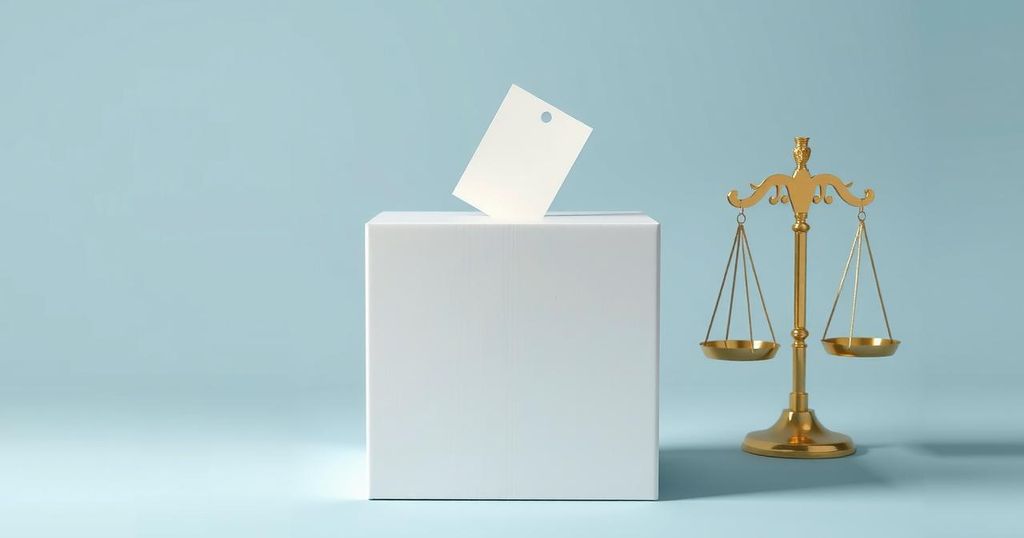Ecuador’s Presidential Election Results in Tie, Setting Stage for Run-Off

Ecuador’s presidential election resulted in a “technical tie,” necessitating a run-off between incumbent Daniel Noboa and challenger Luisa Gonzalez in April. This outcome indicates unexpected competition and highlights voter concerns regarding crime and economic stability. The political landscape reflects deep divisions, with both candidates presenting divergent approaches to governance as they prepare for the decisive election round.
Ecuador’s presidential election will advance to a second round after the first round resulted in a “technical tie,” with incumbent center-right candidate Daniel Noboa and leading left-wing contender Luisa Gonzalez receiving nearly equal percentages of the vote. This unexpected outcome reflects tighter competition than opinion polling had suggested, prompting uncertainty for the upcoming run-off scheduled for April.
Supporters of President Noboa gathered in Quito, hopeful for his victory. They displayed flags, wore T-shirts featuring his image, and showcased cardboard cut-outs of him in varied attire. These cut-outs have become common across Ecuador, symbolizing support for Noboa, whose presidency has primarily focused on combating gang violence through emergency military deployments to address the rising crime rates.
Fernanda Iza, a supporter, noted, “He has brought us a certain stability” amid violence. Many believe his security measures have contributed positively. Some supporters, like Juan Diego Escobar, expressed confidence that voters who supported other candidates would likely favor Noboa in the run-off for his handling of security and economic prospects.
Conversely, Gonzalez has criticized Noboa’s administration for unmet promises related to economic growth and crime reduction. While she aligns with similar security initiatives, her campaign promotes enhanced social spending in regions most affected by violence. Additionally, her supporters view her candidacy as a path toward necessary change amid widespread dissatisfaction with the current administration.
The electoral climate is characterized by voter disillusionment and calls for urgent reforms. Gabriela Cajo, who supported a different candidate, articulated a desire for peace over the prevailing fear, citing a growing frustration with the electoral process. This sentiment indicates potential polarization during the second round, regardless of the victor’s policies.
The next president will inherit extensive challenges, including rampant crime fueled by drug cartels, high unemployment, a faltering economy, and a recent energy crisis that led to significant blackouts. Noboa is advocating for job creation and renewable energy initiatives, while Gonzalez emphasizes economic reform and social investment to alleviate poverty. The outcome of the election will critically shape Ecuador’s future.
The recent presidential election in Ecuador exemplifies the intense political divide within the nation, where the incumbent candidate, Daniel Noboa, faces strong opposition from left-wing challenger Luisa Gonzalez. The election highlights ongoing issues such as security, crime, and economic hardship, all of which have significantly influenced voter sentiments. The run-off, scheduled for April, will determine the course of policy direction in a country grappling with increased violence and a struggling economy. Today’s political landscape reflects the historical context of disillusionment among voters toward established political entities, elevating the importance of this election for Ecuador’s future governance.
In conclusion, the Ecuadorian presidential election’s outcome necessitated a run-off due to a nearly equal vote count between the leading candidates. Noboa’s supporters highlight his measures against gang violence, while Gonzalez advocates for change and enhanced societal investments to combat the roots of crime. The second round will not only determine the next president but also set the policy tone for addressing the pressing issues of crime, poverty, and economic stability facing the nation.
Original Source: www.bbc.com







